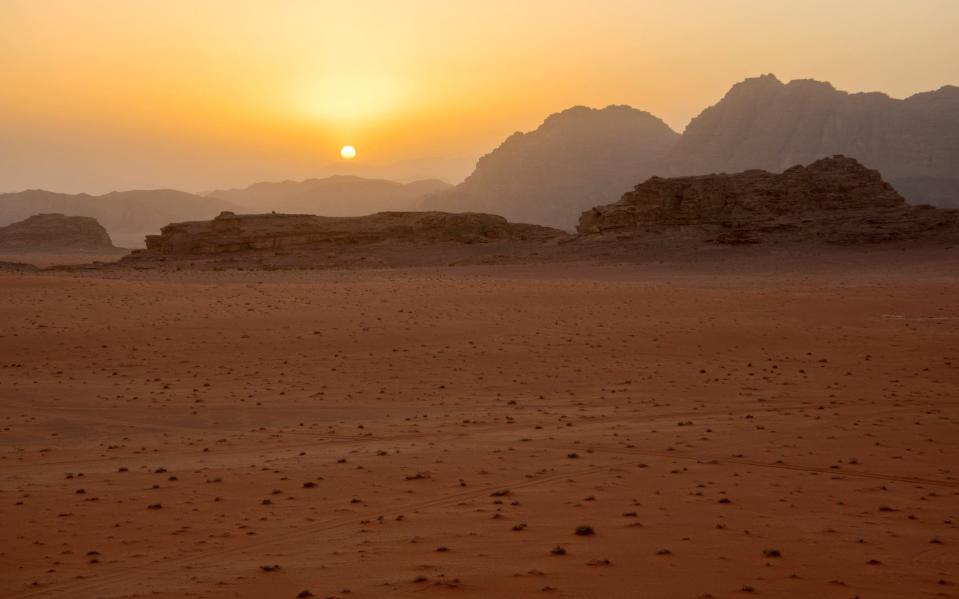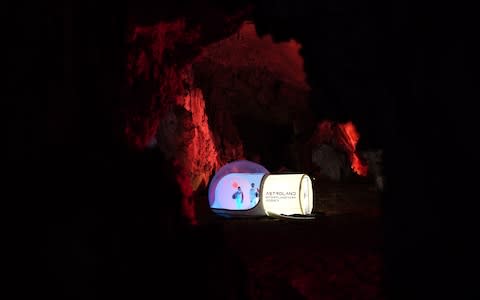You can experience life on Mars in a cave in Spain – for €10,000

While locals quaff tapas on sunny terraces in northern Spain this summer, beneath them, in dank caves about a mile underground, wannabe space tourists will be shuffling around in the dark, pretending they’re on Mars.
Wearing polymer suits and nappies (more on those later), the space-curious travellers will sleep in pressurised capsules and perform various tasks in challenging conditions, including growing crops without any soil.
They will see no natural light for at least three days and be permitted just one phone call to the outside world. And for this they’ll have to fork out a reported €10,000 (£8,714) per person.
A holiday for the Elon Musk age, the new venture is the brainchild of a company called Astroland, which claims its underground expeditions in Spain’s Cantabria region will simulate what it’s like to live in a human colony on the Red Planet, while providing scientific insights to help humanity “overcome the challenges we’ll face on Mars”.

“The Martian environment is very hostile with low temperatures, strong winds and high levels of solar radiation, which means the most suitable way of maintaining human life is... under the Martian surface,” said Astroland CEO, David Ceballos. “These Cantabrian caves are the perfect location for similar conditions for these trials.”
There’s just one problem: Mars can't be colonised by humans. So says NASA, which claims that even with some serious planetary engineering – or terraforming – humans would not be able to survive there without constant life-support technology. The atmosphere, it says, is too thin and cold to support water, which is essential for human survival.
Undeterred, Astroland is pressing on with its expeditions, the first of which is due to start on June 15. Tourists taking part will receive coaching and leadership training, be taught to climb in caves and will learn about hydroponic crop production – a soilless form of farming.

Once underground, the agency claims crews will “test new technologies and develop new research hand in hand with scientific bodies and academic authorities”, though details are scarce. Participants will do all of this in biodegradable nappies to minimise their environmental impact on the cave system.
Astroland hopes to run 10 trips by the end of the year. Each crew will contain up to 10 individuals, who must first register their interest on the company’s website before taking part in a series of interviews to assess their suitability. Participants must be over 18 and prepared to stay in the caves for at least three days.

With echoes of Elon Musk, who wants to move to Mars, Ceballos claims colonising the Red Planet would provide “a second opportunity for humankind to learn from the mistakes made on Earth and to evolve towards a better society where we are more respectful of each other and our environment”.
Leaving one to wonder whether it might just be easier to fix the problems we’ve created here instead.

